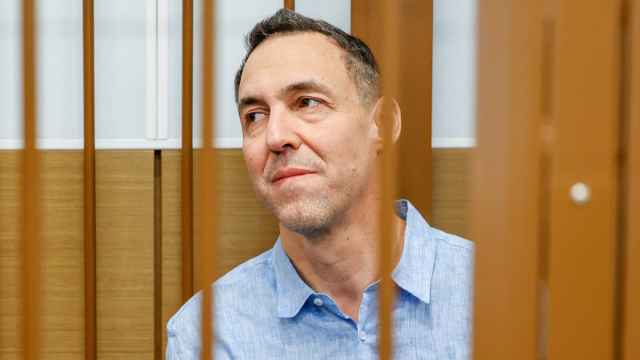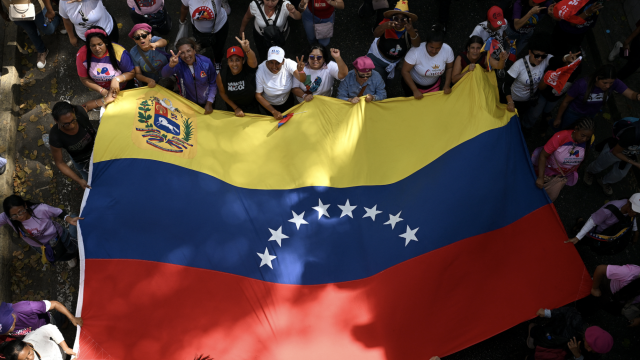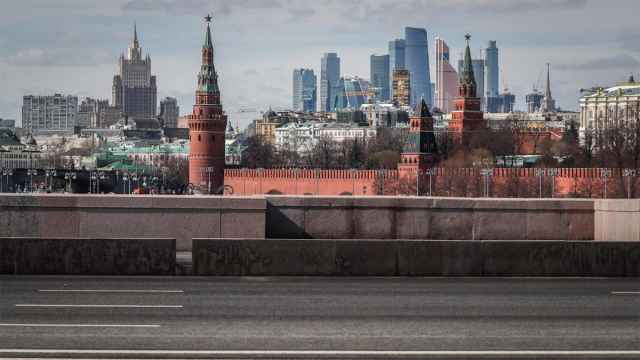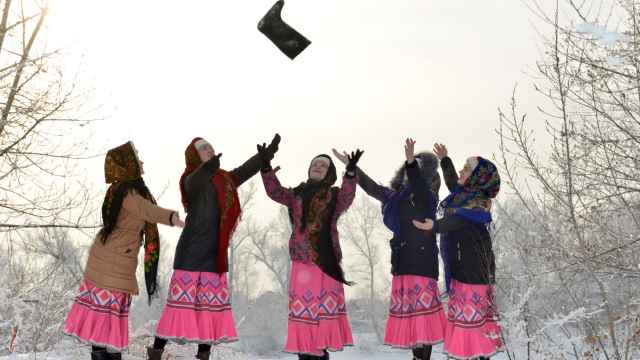BRUSSELS — European Union leaders will hold their first detailed discussion this week of specific steps they can take against Russia if Ukraine's elections are not free and fair, including restrictions ranging from luxury goods imports to an oil and gas ban.
A two-page document setting out three scenarios — low-intensity, medium-intensity and high-intensity sanctions — was circulated to member states last month and will form a basis of discussion at a leaders' summit on May 27.
Under the first, low-intensity scenario, according to details from the document provided to Reuters, the EU would impose restrictions on imports of Russian luxury goods including diamonds, precious metals, furs, vodka and caviar.
In terms of exports, the EU could restrict the sale of fertilizers, chemicals, tires and vessels to Russia, although components for the steel and nuclear industry would be excluded. There would also be restrictions on arms imports and exports.
At the toughest, high-intensity end of the scale, the EU is considering capital market restrictions, a potential prohibition on new investment in Russia, the strict application of EU regulations on any Russian assets held in EU companies and ultimately a complete ban on imports of oil and gas from Russia.
Banning oil and gas would have a powerful impact on the economy. The EU imports about 30 percent of its energy needs from Russia at a total cost of about 130 billion euros in 2013, according to European Commission figures. Several countries are nearly entirely dependent on Russian energy.
The measures under consideration by the EU are what have been dubbed "stage three" sanctions, following asset freezes and travel bans on Russian and Ukrainian individuals — the first step — and restrictions on some companies.
However, while the EU has repeatedly said it is prepared to move to stage three sanctions if Russia destabilizes eastern Ukraine or interferes with presidential elections on May 25, there is no unanimous backing for such a move.
Some countries with close trade and energy ties with Russia, such as Italy, Greece and Germany, are worried about the potential impact on their economies of stricter sanctions, and others, such as Cyprus and Austria have close financial links.
Unless there is unanimous backing for stricter sanctions, the EU will not be able to move ahead — a hurdle that has been frustrating for the U.S., which is keen for Europe to move further in imposing restrictions on Moscow.
At their summit on Tuesday, leaders will discuss a list of sanctions that combines elements from the low-intensity, medium-intensity and high-intensity categories, one diplomat said.
"A basket of concrete measures has already been prepared … and it takes measures from all three scenarios, including sanctions in the financial, energy and arms sectors," said the diplomat, speaking on condition of anonymity.
Caviar, Arms and Oil
The middle scenario laid out in the document includes restrictions on trade and investment related to financial services and on the free movement of capital, as well as an import ban on coal, restrictions on maritime and road transport and a pause in investment in the Russian energy sector.
Germany's Deutsche Bank said in a research note that Europe could afford to impose tough sanctions on Russia, arguing that the impact on GDP would not be excessively damaging.
"The Ukraine crisis and further sanctions will not be inconsequential for the profile of the European recovery, but when looking at the distribution of costs, it seems that the West can afford to be tough toward Moscow," it said.
Even if sanctions force Russia's economy to contract by 10 percent, the impact on Germany — its largest EU trading partner — would be minimal, knocking about 0.5 percentage points off 2014 growth, Deutsche Bank said.
Nonetheless, EU member states remain highly concerned about the possible blowback from tough sanctions on Russia, and diplomats have said they do not want to provoke another economic crisis after years of debt turmoil.
That suggests that while sanctions will be a key topic at Tuesday's summit, reaching a unanimous position on further tough measures remains some way off and may never happen if Russia steps back and Sunday's elections in Ukraine are calm.
A Message from The Moscow Times:
Dear readers,
We are facing unprecedented challenges. Russia's Prosecutor General's Office has designated The Moscow Times as an "undesirable" organization, criminalizing our work and putting our staff at risk of prosecution. This follows our earlier unjust labeling as a "foreign agent."
These actions are direct attempts to silence independent journalism in Russia. The authorities claim our work "discredits the decisions of the Russian leadership." We see things differently: we strive to provide accurate, unbiased reporting on Russia.
We, the journalists of The Moscow Times, refuse to be silenced. But to continue our work, we need your help.
Your support, no matter how small, makes a world of difference. If you can, please support us monthly starting from just $2. It's quick to set up, and every contribution makes a significant impact.
By supporting The Moscow Times, you're defending open, independent journalism in the face of repression. Thank you for standing with us.
Remind me later.





